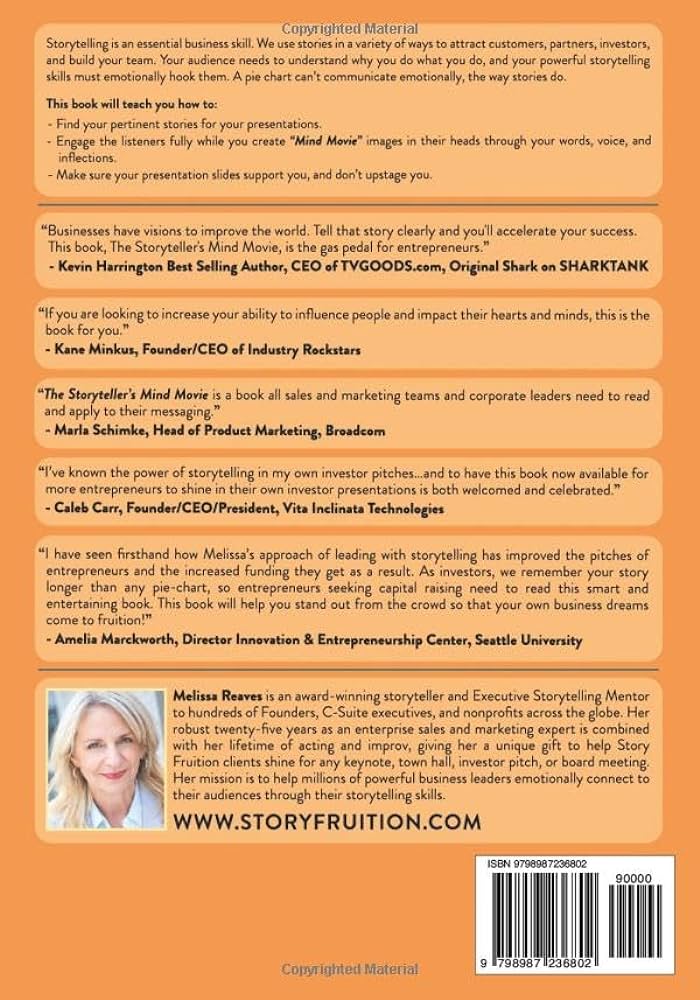9 Best Entrepreneur Books to Boost Your Business and Success Skills
If you’re dreaming of launching your own business or looking to scale your existing venture, diving into the right books can be a game-changer. The wisdom and insights packed within the pages of top entrepreneurial reads can equip you with the tools and mindset needed for success. With countless options out there, it can be overwhelming to choose which ones will truly make a difference.
This article narrows down the selection to the 9 best entrepreneur books that have stood the test of time. Whether you’re seeking inspiration, practical strategies, or a deeper understanding of the entrepreneurial journey, these books offer invaluable guidance. Get ready to transform your approach to business with these must-reads.
Book 1: “Think and Grow Rich” by Napoleon Hill
First published in 1937, “Think and Grow Rich” has stood the test of time as a must-read for many entrepreneurs.
Key Concepts Covered
Hill’s book delves into several principles of personal and financial success. It introduces the concept of the power of thought, suggesting that thoughts can transform into reality. Hill also explores the role of faith, persistence, and planning. He introduces the Mastermind principle, emphasizing the importance of networking and mentorship. These foundational concepts serve as a roadmap for building a successful business and achieving financial independence.
Why It’s a Must-Read for Entrepreneurs
This book remains relevant because it addresses the mental and strategic elements crucial for entrepreneurial success. It offers timeless advice on maintaining a positive mindset, setting clear goals, and the importance of persistence. Entrepreneurs can find value in Hill’s detailed discussion of overcoming failure and staying motivated. Whether you’re launching a startup or seeking to expand your business, “Think and Grow Rich” provides the mindset and strategies that can help you on your journey to wealth and success.
Book 2: “The Lean Startup” by Eric Ries
Eric Ries’s “The Lean Startup” is a game-changing book for anyone diving into the entrepreneurial world. It offers a fresh perspective on how to create and manage successful startups.
Core Principles of the Lean Startup Method
Ries introduces the Lean Startup methodology, centered around several core principles. First, the Build-Measure-Learn feedback loop is crucial. You build a minimum viable product (MVP), measure its performance, and learn valuable insights to iterate further. Second, the principle of validated learning encourages you to verify ideas through experiments rather than assumptions. Third, Ries emphasizes the importance of pivoting—or making changes based on feedback—over sticking to a failing strategy. These principles collectively foster continuous improvement and adaptability.
Impact on Modern Entrepreneurship
This book has profoundly impacted modern entrepreneurship. It has reshaped how startups approach growth by promoting lean principles and reducing waste. Startup founders now focus on creating MVPs to test ideas quickly and receive feedback sooner. By prioritizing customer feedback, “The Lean Startup” helps you minimize risks and make data-driven decisions. As a result, businesses become more responsive to market needs, enhancing their chances of success. Companies like Dropbox and Airbnb have adopted these methodologies to revolutionize their industries.
Book 3: “Zero to One” by Peter Thiel with Blake Masters
Entrepreneur and venture capitalist Peter Thiel, along with Blake Masters, offers unique insights in “Zero to One.” This book challenges conventional startup wisdom, providing fresh perspectives on innovation and monopoly.
Insights on Innovation and Monopoly
Thiel argues that true innovation happens when we create something entirely new, moving from zero to one. He emphasizes the importance of aiming for monopolies by building businesses that offer unique products or services that are significantly better than the competition. For instance, companies like Google and Facebook have achieved monopoly-like status by dominating their niches with groundbreaking technology and innovative approaches. Thiel encourages you to seek opportunities where you can create new markets, rather than competing in existing ones.
Lessons for Startup Founders
Thiel offers practical advice for startup founders, urging them to think big and scale their ideas. He stresses the importance of developing a clear vision and sticking to it, even in the face of challenges. He also highlights the role of strong teams in achieving success, noting that complementary skills and a shared vision among team members are crucial. Thiel’s concept of the “Definite Optimism” mindset—that the future can be better and that you have the power to influence it—resonates strongly throughout the book. This mindset can empower you to pursue groundbreaking ideas and transform industries.
Book 4: “The 4-Hour Work Week” by Timothy Ferriss
Timothy Ferriss’s “The 4-Hour Work Week” is a game changer for those looking to escape the 9-to-5 grind. Discover how to create more freedom and flexibility in your life and career.
Redefining Productivity and Lifestyle
Ferriss revolutionizes the way you think about work and productivity. He challenges traditional notions by suggesting that efficiency, not effort, should drive your working hours. Ferriss promotes the idea of mini-retirements, advocating for work-life balance and the pursuit of passions. He shares how his personal journey, filled with travel and unconventional productivity hacks, can lead to a more fulfilled life.
Practical Tips for Automation and Outsourcing
Ferriss provides actionable strategies to automate your workflow. He emphasizes using tools and technology to delegate tasks that don’t require your direct involvement. Ferriss’s principle of ‘elimination’ helps you focus on high-impact activities. He highlights outsourcing as a key element, discussing platforms like Upwork and Fiverr to find virtual assistants and specialized freelancers. His approach allows you to free up time, enabling you to work smarter, not harder.
Book 5: “The $100 Startup” by Chris Guillebeau
Chris Guillebeau uncovers success stories of entrepreneurs who started small and built thriving businesses. This book is a goldmine for anyone looking to launch on a shoestring budget.
Case Studies of Micro-business Success
Guillebeau includes over 50 case studies featuring entrepreneurs who turned modest investments into profitable ventures. You’ll read about individuals like an artist who started a thriving online art store with just $50 and a travel blogger who monetized her passion into a six-figure income.
Emphasizing the Power of a Small Budget
The book emphasizes that you don’t need significant capital to start a successful business. Guillebeau offers actionable advice on resourcefulness and maximizing limited funds. You’ll learn to identify profitable opportunities, make the most of what you have, and grow your business without heavy financial constraints.
Book 6: “Rich Dad Poor $dad” by Robert Kiyosaki
Financial Literacy for Entrepreneurs
Kiyosaki’s “Rich Dad Poor Dad” teaches you the importance of financial literacy. It emphasizes understanding how money works, managing finances, and making wise investments. You’ll learn about the difference between assets and liabilities and how to build wealth through smart financial habits. This book provides real-life examples that make complex financial concepts easy to understand, helping entrepreneurs like yourself build a solid financial foundation.
Kiyosaki’s Philosophy on Money and Investing
Kiyosaki’s philosophy challenges traditional views on money and investing. He encourages you to think differently about wealth, advocating for investments in assets that generate passive income. Instead of solely relying on a paycheck, Kiyosaki promotes building multiple income streams through real estate, stocks, and small businesses. His teachings inspire you to adopt a mindset that focuses on financial independence and long-term wealth creation.
Book 7: “The Hard Thing About Hard Things” by Ben Horowitz
Ben Horowitz, co-founder of Andreessen Horowitz, offers real-world advice on the challenges of building and running a startup. His book is a must-read for anyone serious about navigating the entrepreneurial landscape.
Advice on Building and Running a Startup
Horowitz doesn’t sugarcoat the difficulties of starting and scaling a business. He provides actionable insights, drawing from his own experiences running companies. You’ll find specific strategies for managing tough situations, making crucial decisions, and leading your team effectively. For instance, he details how to lay off employees, pivot a failing business, and handle complex legal issues.
The Reality of the Entrepreneurial Journey
Horowitz captures the genuine ups and downs of entrepreneurship. He emphasizes that the path to success is rarely straightforward, and setbacks are part of the journey. You’ll learn to embrace these challenges and use them to grow your business. With anecdotes from his career, Horowitz makes it clear that resilience and adaptability are key to surviving and thriving in the startup world.
Book 8: “How to Win Friends and Influence People” by Dale Carnegie
Dale Carnegie’s classic, “How to Win Friends and Influence People,” provides valuable insights into human relations and effective communication. This book remains a cornerstone for personal and professional development.
Interpersonal Skills for Business Success
Mastering interpersonal skills is vital for any entrepreneur. Carnegie teaches you how to connect deeply with others, making them feel valued and understood. For example, using someone’s name during a conversation can create a personal connection. Carnegie also emphasizes the importance of genuine interest in others’ perspectives, fostering stronger relationships that can benefit your business.
Timeless Strategies for Networking and Influence
Effective networking and influence can propel your entrepreneurial journey. Carnegie’s strategies, such as giving honest and sincere appreciation and avoiding arguments, help you win people’s trust and cooperation. He suggests that showing respect for others’ opinions and admitting your mistakes can turn adversaries into allies. Adopting these timeless principles enhances your ability to influence others positively, opening doors to new opportunities and collaborations.
Book 9: “Good to Great” by Jim Collins
This book explores what differentiates merely good companies from those that achieve lasting greatness.
Criteria for Turning a Good Company into a Great One
Identify disciplined people. Collins emphasizes hiring self-motivated individuals who align with your company’s core values. Build a culture. Create an environment that encourages disciplined action and responsibility. Use the Hedgehog Concept. Focus on what you can be best in the world at and what drives your economic engine. Implement a culture of innovation without unnecessary risk. Adopt technological accelerators. Use technology to enhance growth, not as the primary driver.
Lessons from Companies that Achieved Long-term Excellence
Understand the flywheel effect. Collins explains how cumulative efforts contribute to momentum and long-term success. Realize the importance of Level 5 leadership. Leaders should combine humility with fierce resolve to achieve company goals. Embrace the Stockdale Paradox. Confront the brutal facts of your current reality while maintaining faith in your eventual success. Maintain a “first who, then what” approach. Ensure you have the right team in place before deciding the strategy.
Conclusion: Integrating Lessons from the 9 Best Entrepreneur Books
Diving into these nine books offers a wealth of knowledge and actionable insights for any entrepreneur. Each book provides unique perspectives and practical advice, from mastering financial literacy to fostering innovation and achieving work-life balance. As you absorb these lessons, you’ll be better equipped to navigate the entrepreneurial landscape and drive your business toward long-term success. Remember to apply the principles consistently and adapt them to your unique circumstances. Your journey to entrepreneurial excellence is a continuous learning process, and these books are valuable tools to guide you along the way.
Frequently Asked Questions
What are some essential books for entrepreneurs?
Some essential books for entrepreneurs include “Think and Grow Rich,” “The Lean Startup,” “Zero to One,” “The 4-Hour Work Week,” “The $100 Startup,” “Rich Dad Poor Dad,” “How to Win Friends and Influence People,” and “Good to Great.” These books cover topics like success principles, lean methodologies, innovation, work-life balance, financial literacy, and leadership.
Why is “Think and Grow Rich” important for entrepreneurs?
“Think and Grow Rich” is important for entrepreneurs because it outlines timeless principles of success. It emphasizes the power of mindset, goal-setting, and planning, which are crucial for achieving entrepreneurial goals and long-term success.
How can “The Lean Startup” help new entrepreneurs?
“The Lean Startup” helps new entrepreneurs by teaching lean methodologies. It focuses on validating business ideas quickly, minimizing waste, and accelerating product development, which can significantly increase the chances of startup success.
What lessons does “Zero to One” offer?
“Zero to One” offers lessons on innovation and creating unique products or services. It emphasizes the importance of moving from nothing to creating groundbreaking solutions, rather than incremental improvement.
How does “The 4-Hour Work Week” benefit entrepreneurs?
“The 4-Hour Work Week” benefits entrepreneurs by promoting work-life balance and efficient time management. It provides strategies for automating tasks, outsourcing, and optimizing workflows to achieve more with less effort.
What insights does “The $100 Startup” provide for budget-conscious entrepreneurs?
“The $100 Startup” provides insights into starting a business with minimal investment. It shares success stories and practical tips for launching profitable ventures on a tight budget, making entrepreneurship accessible to more people.
Why is “Rich Dad Poor Dad” recommended for financial literacy?
“Rich Dad Poor Dad” is recommended for financial literacy because it contrasts different financial mindsets and teaches essential money management skills. It helps entrepreneurs understand the importance of assets, liabilities, and making smart financial decisions.
How does “How to Win Friends and Influence People” help entrepreneurs?
“How to Win Friends and Influence People” helps entrepreneurs by improving interpersonal skills. It offers practical advice on building relationships, influencing others positively, and effectively communicating, which are critical for business success.
What key principles are discussed in “Good to Great”?
“Good to Great” discusses key principles like the Hedgehog Concept and Level 5 leadership. It explores how companies achieve long-term excellence by focusing on what they can be the best at, maintaining discipline, and having leaders who are both humble and driven.






